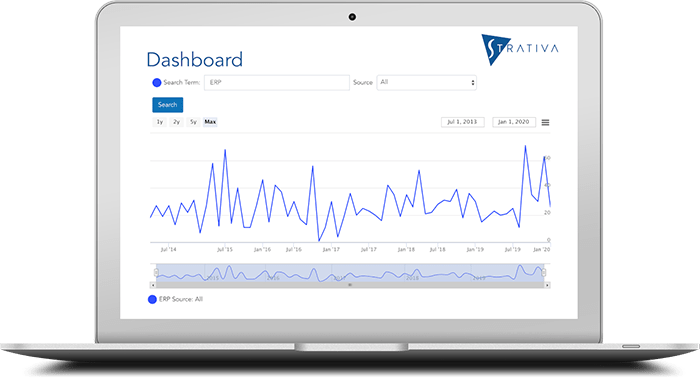
Plex Systems, a long time cloud ERP provider, primarily to automotive and industrial suppliers, has recently been expanding its focus to the food and beverage sector. This post outlines the capabilities of Plex for food and beverage manufacturers along with steps that it is taking to better serve this industry.
Selective in Industry Focus
Starting with a clean sheet of paper in 2000, Plex completely rewrote its on-premises system as a pure multitenant SaaS offering. Privately held, Plex received private equity investment beginning in 2012. The infusion of capital has allowed Plex to more rapidly build out it sales and marketing function, accelerating growth. Since the funding, Plex has been growing at the double digit rates that are typical of enterprise SaaS providers. In fact, Plex reported 30% growth in 2015, to nearly 500 customers across more than 1,500 manufacturing facilities around the world.
Although these investments have allowed Plex to expand its already-extensive functionality, the company has been quite selective in what markets it goes after. In contrast with some other cloud providers, Plex is quite choosey in what sales opportunities it pursues. In our consulting work at Strativa, there have been several new deals where we thought Plex was qualified, but the company politely declined to pursue them, feeling they were outside of their sweet spot. (The majority of Plex customers are in automotive, industrial products, high tech electronics, with some presence in aerospace and defense.)
So, to see Plex now actively pursuing opportunities in food and beverage indicates that Plex is serious about this market. Nevertheless, even within this sector, Plex is selective in its focus.
For example, in a briefing at Plex’s recent user conference, Karl Ederle, VP of Product Management, indicated that Plex is not chasing deals with agricultural products, such as fresh produce or meat and poultry. Neither is Plex ready to go after large producers of consumer foods, which typically require functionality beyond what Plex can currently provide. Its first target market, therefore, is contract food manufacturers and co-packers.
We interviewed one such customer, Nick Jones, from Aaron Thomas Company, a contract packaging and distribution services provider, of foods and nutraceuticals, right here in Orange County, CA. Nick pointed to Plex’s ability to manage customer-owned inventory, its customer portal, and lot traceability functionality as important in the selection of Plex. Interestingly, the company is periodically inspected by seven regulatory agencies, including the US Food and Drug Administration (FDA), and Jones is confident in his use of Plex to support regulatory compliance. As evidence, he indicated that the company can now perform a mock recall of product in less than an hour—an exercise that used to take eight hours.
Plex also has good references with several beer-makers, such as Green Flash Brewery, also here in Southern California. In our interview with Green Flash CFO Steve Goodger, he indicated that Plex is a good fit for brewery production and quality requirements, with the system’s API capabilities a particularly strong feature. Interestingly, however, Plex has not been pursuing opportunities in wineries.
Plex Brings Strengths to Food and Beverage
It might seem like an illogical jump from auto parts to foods, but there is much that Plex brings to the food and beverage industry, based on its experience in the automotive and industrial sector.
- Quality management: like automotive suppliers, food and beverage manufacturers have serious requirements for quality. Quality plans, check lists, statistical process control, inspection and testing are needs common to both sectors.
- Lot/serial tracking. Likewise, lot and serial number traceability from customer back through to supplier is a key requirement in both industries. If a batch of supplier material is defective, both auto industry and food industry suppliers must be able to quickly recall all affected product from distribution.
- Factory data collection. Many auto suppliers, and most food manufacturers, are asset-intensive industries. Machine-to-machine communication and factory data collection systems are essential. Plex shines in these capabilities, with 50% of its transactions originating from machine interfaces.
- Electronic commerce. The automotive industry was a key developer of the electronic data interchange standards now in use today. The food industry, likewise, makes heavy use of EDI up and down its supply chains.
Other capabilities, such as plant and equipment maintenance and the ability to support customer-owned inventory, are common to both industries as well.
What Plex Must Strengthen for Food & Beverage
As a new entrant, it is no surprise that Plex needs to build out its capabilities to support food and beverage makers. Discussions with Plex representatives as well as customers point toward several areas where Plex needs to expand its functionality for this sector.
- Trade promotions management. Consumer incentives to purchase products are common in the food and beverage industry. We are all familiar with grocery store coupons. Trade promotions also include off-invoice promotions, bill-backs, buy-one-get-one-free, marketing development funds, and many other variations. Fortunately, there are a number of best-of-breed vendors that can provide this functionality. Plex is working to meet these requirements through partnerships today, but these alliances will need to be formalized if Plex intends to move into consumer packaged goods. In our estimation, this is a much larger opportunity for Plex.
- Warehouse management. Most contract manufacturers and co-packers do not have major requirements for sophisticated warehouse management systems, but many need warehouse management for raw materials, packaging, and work-in-process. This requirement becomes even greater when moving into consumer packaged goods. Plex does not have warehouse management capabilities today and does not even have formal partnerships for these capabilities.
- Expiration dating. Automotive and industrial products have some expiration dating requirements, especially around plastics and rubber materials. Plex does support expiration dating, but the requirements for many food and beverage manufacturers go beyond what Plex has today. Multiple expiration dates are needed, such as ship-by, sell-by, and best-used-by dating. Plex is working on enhancing these capabilities.
- Units of measure. Automotive and industrial suppliers have some units of measure conversion requirements, but the need is in spades for food and beverage. Manufacturers may buy in one unit of measure (e.g. pounds), manufacture in another (e.g. gallons), and sell in another (e.g. cases). Potency of raw materials is another factor, where the effective units of measure depends on some attribute that varies by lot (e.g. sugar content). These are areas where Plex will need to build out its capabilities.
- Production scheduling. Utilization of facilities and equipment is a key driver of profitability in food and beverage manufacturing. Therefore, manufacturers often have complex rules for sequencing production batches. For example, to minimize required cleaning of production equipment, batches with nuts (which cause an allergic reaction in some people) should be run after all production batches without nuts have been processed.
Many good systems for food and beverage makers date back to before the client-server era. Although some of them are still viable, Plex is a new entrant, built on a pure cloud platform, starting with a clean sheet of paper. This will allow Plex to envision new ways to support these companies. Food and beverage manufacturers, especially contract manufacturers and co-packers looking for new systems, should take a look at Plex. There may be some important capabilities still to be built out, but the roadmap looks encouraging.
Image credit: Wikipedia

